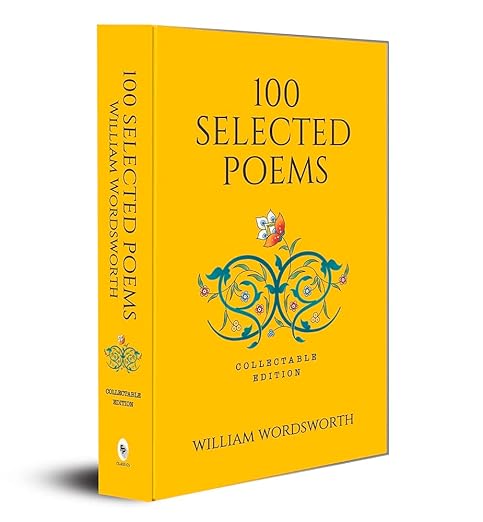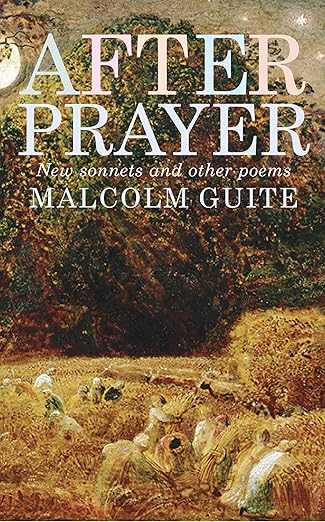 Spiraling, as metaphor and embodiment, the isolation of the spiral, is the collection’s center. On the invented face of “The Other” who lived and died and is resurrected, as Paz wrote, are “the wrinkles of that face./His wrinkles have no face”; for Clariond’s invented face, with the same fervor of a body negating its own being, “the river in which we see ourselves tells a lie: the light/of the word will forever remain a force of absence:/a radiance flowing past the edge of sight.” The book, full of edgeless radiance, more a body than the body.
Spiraling, as metaphor and embodiment, the isolation of the spiral, is the collection’s center. On the invented face of “The Other” who lived and died and is resurrected, as Paz wrote, are “the wrinkles of that face./His wrinkles have no face”; for Clariond’s invented face, with the same fervor of a body negating its own being, “the river in which we see ourselves tells a lie: the light/of the word will forever remain a force of absence:/a radiance flowing past the edge of sight.” The book, full of edgeless radiance, more a body than the body.
Category: Poetry Reviews
A review of New Cemetery By Simon Armitage
 These lines progress like steps, gently but persistently moving forward at a walking pace, keeping, as Armitage says in “Moths”, with his “frame of mind” and “length of stride” at this time of life. The overall effect is soothing and reverent, taking on the quiet progression of his subject matter, a new cemetery built near Armitage’s home in West Yorkshire. He also invites us to see each tercet as a winged moth: “two wings and a body part” or at least moth-like in the poem’s fragile diminutive nature.
These lines progress like steps, gently but persistently moving forward at a walking pace, keeping, as Armitage says in “Moths”, with his “frame of mind” and “length of stride” at this time of life. The overall effect is soothing and reverent, taking on the quiet progression of his subject matter, a new cemetery built near Armitage’s home in West Yorkshire. He also invites us to see each tercet as a winged moth: “two wings and a body part” or at least moth-like in the poem’s fragile diminutive nature.
100 Selected Poems by William Wordsworth
 Here in these poems from the naïve and yet wisdom reply of a little girl to poems about nature or nature poems we see what William Wordsworth does so well: Mixing passion with poetic excellence, displaying poetic mastery in simple diction to give the profound and remarkable through verses that show beauty and mean something and provoke thought and entertain at the same time.
Here in these poems from the naïve and yet wisdom reply of a little girl to poems about nature or nature poems we see what William Wordsworth does so well: Mixing passion with poetic excellence, displaying poetic mastery in simple diction to give the profound and remarkable through verses that show beauty and mean something and provoke thought and entertain at the same time.
A review of The Music of Being by Jean Nordhaus
 Nordhaus’s fascination with language (born of her early exposure to Yiddish) is apparent in her handling of form, and her deft orchestration of words. But it’s the use to which she puts these gifts which elevates her work, confers on it a certain authority. It is a gentle authority, capturing the reader’s attention and holding it with skill and purpose, but more than that, there’s a knowingness, a kind of wisdom that comes off the page; whispered perhaps, but evident nonetheless.
Nordhaus’s fascination with language (born of her early exposure to Yiddish) is apparent in her handling of form, and her deft orchestration of words. But it’s the use to which she puts these gifts which elevates her work, confers on it a certain authority. It is a gentle authority, capturing the reader’s attention and holding it with skill and purpose, but more than that, there’s a knowingness, a kind of wisdom that comes off the page; whispered perhaps, but evident nonetheless.
A review of Her Mouth A Palace of Lamps by Yamini Pathak
 Her Mouth a Palace of Lamps is constructed as a sort of song, with parts corresponding to the Indian raga. After the Prelude and the poem titled “Pakad,” which is a Hindi word signifying a musical phrase, as well as a verb meaning “hold, catch, capture, cling, preserve, protect,” the collection is divided into sections relating to the raga – “Thaat,” the parent scale, “Alaap,” the invocation, a melodic improvisation that introduces the raga, and “Pakad,” which is the essence of the raga – poems that, indeed, capture and preserve memories, or not even “memories” so much as “melodies.”
Her Mouth a Palace of Lamps is constructed as a sort of song, with parts corresponding to the Indian raga. After the Prelude and the poem titled “Pakad,” which is a Hindi word signifying a musical phrase, as well as a verb meaning “hold, catch, capture, cling, preserve, protect,” the collection is divided into sections relating to the raga – “Thaat,” the parent scale, “Alaap,” the invocation, a melodic improvisation that introduces the raga, and “Pakad,” which is the essence of the raga – poems that, indeed, capture and preserve memories, or not even “memories” so much as “melodies.”
A review of The Work Anxiety Poems by Alan Catlin
 The first three dozen and change poems in The Work Anxiety Poems deal with the “work” aspect: poems that focus on the bar, a setting familiar to readers of Alan Catlin’s work, from his professional career in the hospitality industry. Drunks, cops, killers, lost women, lost men (“Maybe he was just another cruel / joke by God,” he starts “Good Friday”). He’s seen them all. They’re the people you’ve come to expect inhabiting Catlin’s poems.
The first three dozen and change poems in The Work Anxiety Poems deal with the “work” aspect: poems that focus on the bar, a setting familiar to readers of Alan Catlin’s work, from his professional career in the hospitality industry. Drunks, cops, killers, lost women, lost men (“Maybe he was just another cruel / joke by God,” he starts “Good Friday”). He’s seen them all. They’re the people you’ve come to expect inhabiting Catlin’s poems.
A review of Padre Tierra: A Poem in 50 Sections by Mariano Zaro
 With each individual section of the poem carefully translated from the original Spanish, the book length poem begins within the space of a home, a room and the day, exploring the natural landscape, a setting based on Zaro’s childhood growing up in rural Northern Spain, and the interrelationship between a father and son.
With each individual section of the poem carefully translated from the original Spanish, the book length poem begins within the space of a home, a room and the day, exploring the natural landscape, a setting based on Zaro’s childhood growing up in rural Northern Spain, and the interrelationship between a father and son.
A review of A Blink of Time’s Eye by David Adés
 Adés’ latest collection, A Blink of Time’s Eye, strikes me as his best yet, using the kinds of reflection and reminiscence that come with a mature perspective, to find meaning in the present. Like all good poetry it has a way of transcending time even as it is bound by it. A Blink of Times’ Eye is an introspective, lyrical collection that explores the many things that are lost, and what is held through time. The book is structured into four sections, each focused on time in one sense or another – future, past, present and an imagined, conjured past – let’s call it Anemoia – a longing mingling with nostalgia for an alternative pathway – something not bodily experienced.
Adés’ latest collection, A Blink of Time’s Eye, strikes me as his best yet, using the kinds of reflection and reminiscence that come with a mature perspective, to find meaning in the present. Like all good poetry it has a way of transcending time even as it is bound by it. A Blink of Times’ Eye is an introspective, lyrical collection that explores the many things that are lost, and what is held through time. The book is structured into four sections, each focused on time in one sense or another – future, past, present and an imagined, conjured past – let’s call it Anemoia – a longing mingling with nostalgia for an alternative pathway – something not bodily experienced.
A review of After Prayer by Malcolm Guite
 The appeal of the book as poetic material has its good points: Good poetic diction, deep thought, formal structure, well developed themes, knowledge of the subject matter, good organization. The weaker points are these; Malcolm Guite does not seem to be a gifted rhymer or one who can rhyme without any difficulty giving perfect rhymes.
The appeal of the book as poetic material has its good points: Good poetic diction, deep thought, formal structure, well developed themes, knowledge of the subject matter, good organization. The weaker points are these; Malcolm Guite does not seem to be a gifted rhymer or one who can rhyme without any difficulty giving perfect rhymes.
A review of Obsolete Hill by Meg Eden Kuyatt
 Working in the spirit of haikyo exploration culture, which emphasizes observation and documentation, Kuyatt builds poems that revel in specificity: a bowling alley with one hundred and eight unused lanes, a mostly shuttered mall in which a man tends aloe vera. Reading these poems through the lens of Kuyatt’s linked interests—meaning-making and ephemerality—we can appreciate why one might garden in a failing space.
Working in the spirit of haikyo exploration culture, which emphasizes observation and documentation, Kuyatt builds poems that revel in specificity: a bowling alley with one hundred and eight unused lanes, a mostly shuttered mall in which a man tends aloe vera. Reading these poems through the lens of Kuyatt’s linked interests—meaning-making and ephemerality—we can appreciate why one might garden in a failing space.